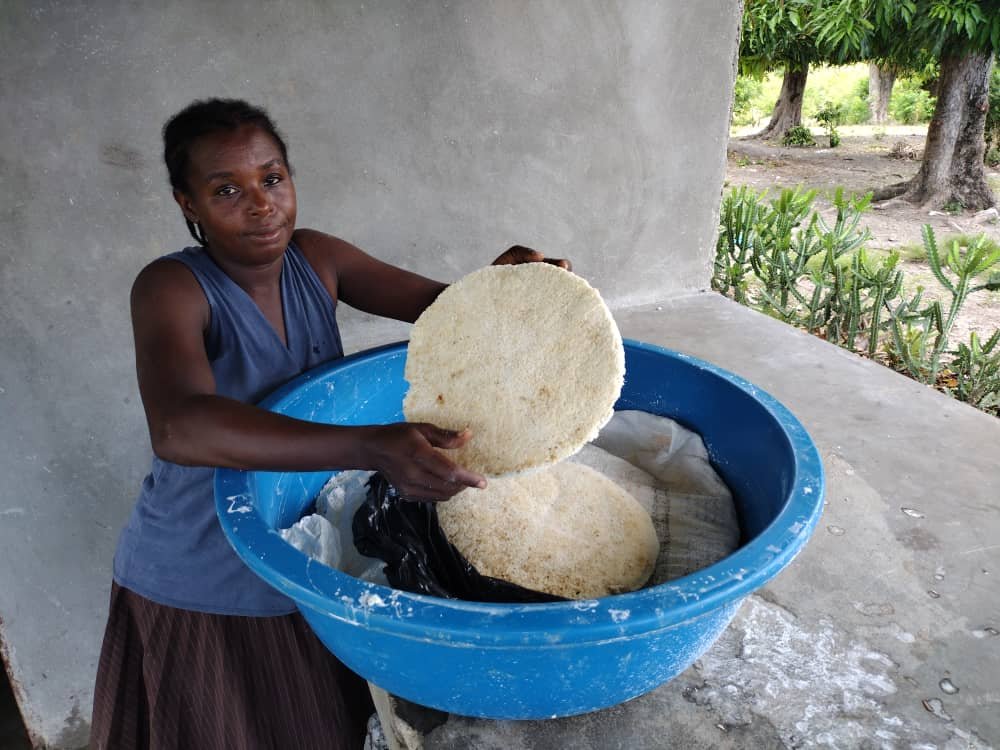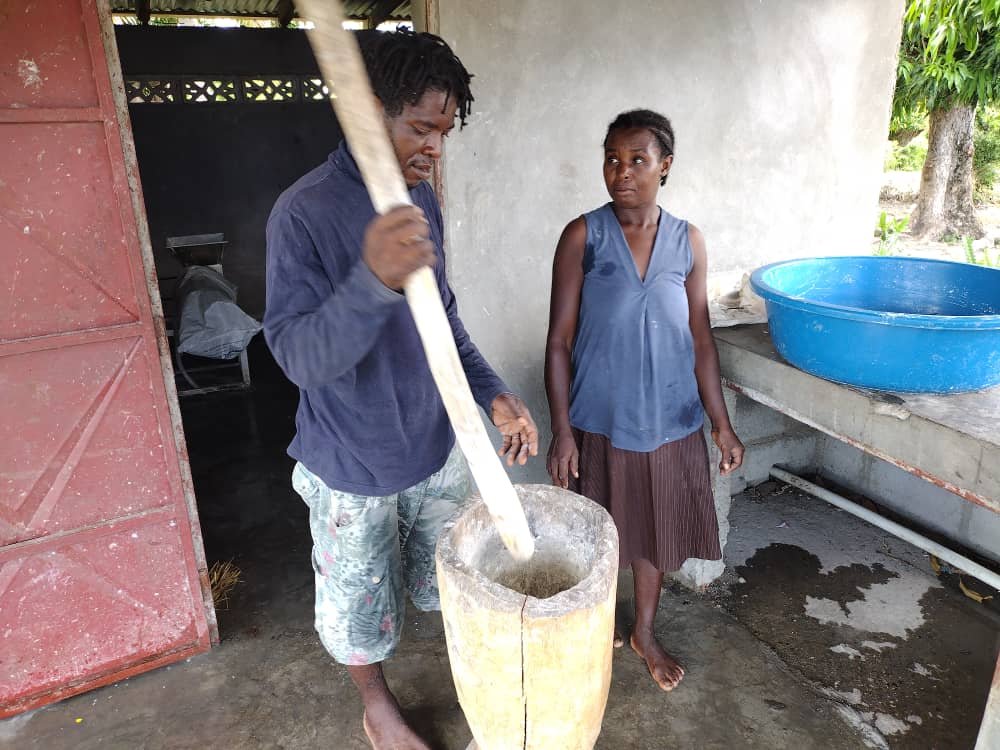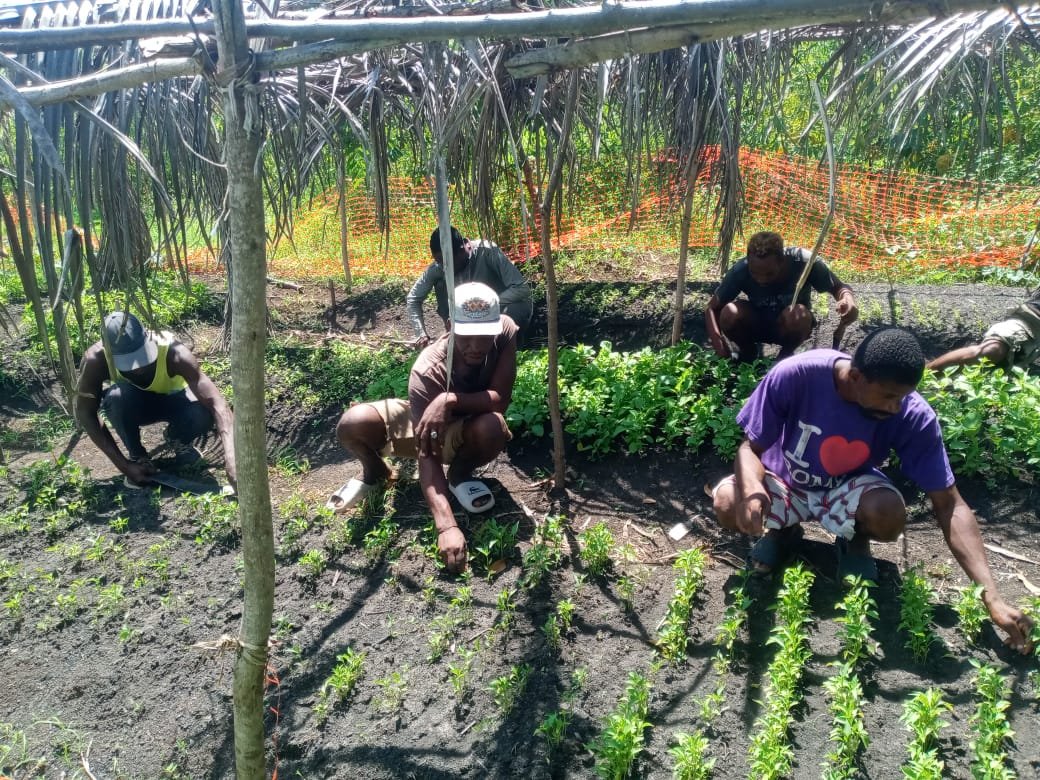Agriculture program updates from Anousse Paul
This post has been submitted by the lead agronomist of the GSF Agriculture Program, Anousse Paul, on the ground at Ile-A-Vache. Here, he summarizes the achievements of the agriculture program over the last year. Everything he has continued to achieve for our school at La Hatte and the island of Ile-A-Vache is remarkable. Way to go Anousse!
The agricultural project has undergone quite a few variations in recent years with the aim of providing real support to the local population. Thus in 2020, in the midst of the Covid crisis, thanks to a generous donation from Aqualia, we were able to benefit from materials and equipment in order to equip ourselves with a cassava-to-flour/bread processing plant. This factory was seen as a real response to the problem of cassava waste on the island, because farmers can not only sell us their cassava but also, are enabled to come and make cassava bread with our equipment. This requires them to be much more organized. It also offers an alternative to traditional bread, because (wheat) bread sells for 50 gourdes for the smallest size where before it was 10 gourdes. A bag of wheat flour (25 kg) sells for up to 5,000 gourdes ($35 US). This factory has hired 2 women as cooks, and a man to operate the equipment.
We also have a small mill that can transform peanuts into mamba (peanut butter), which is eaten with the cassava. The school’s peanut butter is supplied by Immacula (wife of Phelix Joseph). Our mill which processes her peanuts for her in exchange for a fuel fee. From an economic point of view, the first Cassaverie is starting to generate funds that can restock us with cassava and also cover fuel costs, but we are working so that it takes care of all of its costs and will functions as a business in its own right. It is not yet enough to pay the salaries completely, but now covers 30 to 40% of salaries, and as soon as we start to harvest our own cassava fields it will increase considerably, from January 2024. A maize mill has also been ordered to expand our capacities in producing maize flour (cornmeal) and cracked maize (chicken feed).
It is from what we observed with this first cassava factory that Aqualia again rewarded us with another donation of $20k US to provide the island with another cassava factory in Bois-Bouton to the west. We are waiting for the delivery of the equipment which has already been paid for. Arrangements have been made to restore a building on community land.
The agricultural project continues to run as usual. We have resumed egg production thanks to a new breed of chicken, the Goliath, which is less demanding of imported feed than the previous hens. Currently, our first eggs are starting to arrive. Out of a flock of 200, we already have 90 laying, and they live in the old rabbit building which was converted for this purpose. This production is for the school and the surplus will be sold elsewhere. We also started raising livestock because the two old henhouses were empty. Currently our goats are doing well. Our herd consists of 25 goats of different ages, made up of 23 adult females and two males. The vast majority of females are pregnant and 3 have already given birth. From January the kids will be ready for consumption. For their feed we had to plant moringa, Gliricidia, Panicum, Leucaena, and other local greens. The health of our goats contrasts well with local goats (which are unattended and sickly, and raid the vegetable gardens but also often consume plastic waste they encounter).
Our fields continue to produce corn, beans, millet, vegetables of all kinds, cassava, sweet potatoes, bananas, etc. except that we are unfortunately faced with drought problems every year and we are obliged to continue to try again. Yet, despite the challenges, we remain the only source of food production nearby. There is also the veterinary pharmacy which continues to serve farmers at a low cost, enough to restock. A gallon of gasoline sells for 1000 gourdes (US$7) and sometimes even more, this is always a problem for any business, so we try to travel as little as possible to visit sick livestock.
With donations, GSF was able to provide direct food assistance to the elderly, disabled people, pregnant women and young mothers. Since May we have distributed a food kit to 200 people every month. The program will last a year, meaning that there are still 8 months left. This program is a very great blessing and indeed saver of lives. To carry out these programs, the entire agronomy team is very interested in offering their service to the community, and to thank our benefactors.




